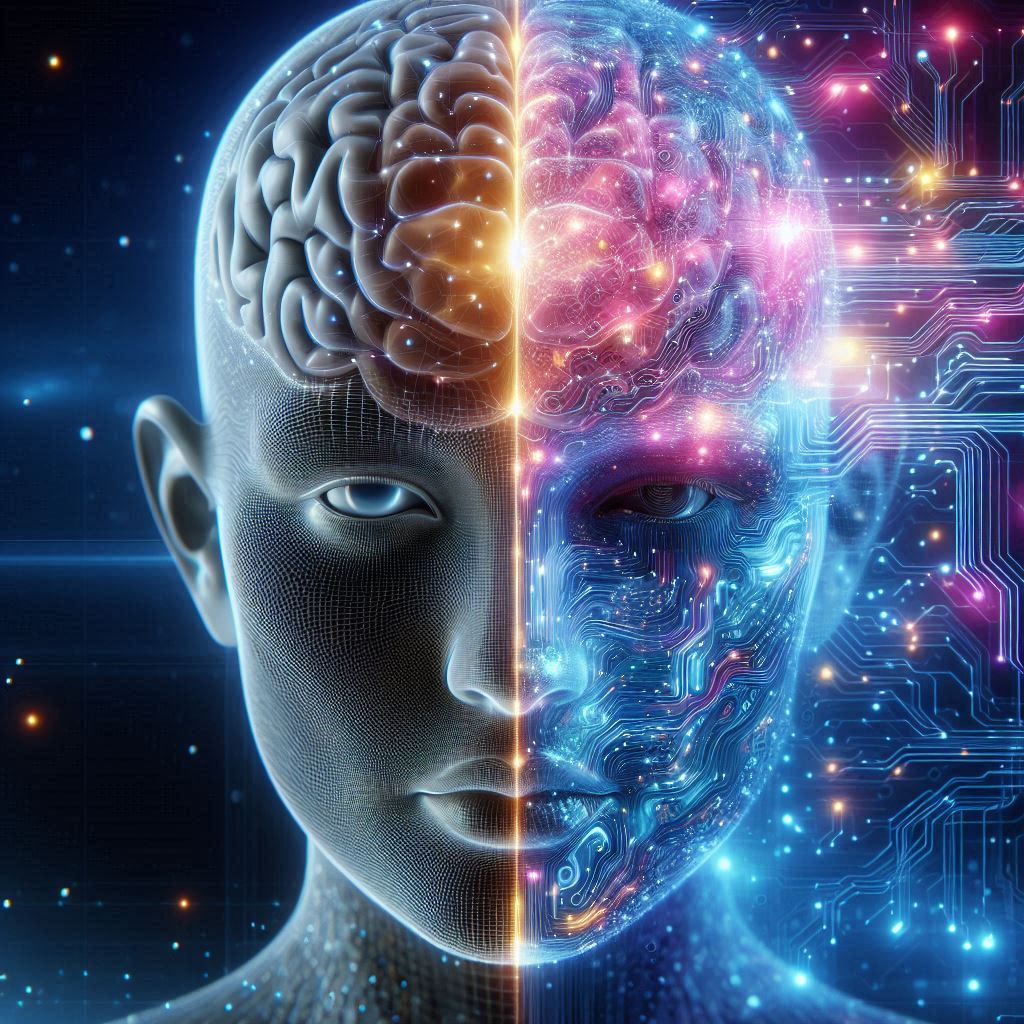Psychology, the scientific study of the human mind and behavior, has always evolved alongside the societies it seeks to understand. In the 21st century, however, that evolution is accelerating at an unprecedented pace. Technological innovation, cultural transformation, and global interconnectedness are redefining what it means to think, feel, and interact. From artificial intelligence and brain-computer interfaces to social media and digital therapy, the landscape of psychology is being reshaped by both machines and minds.
The future of psychology will not merely be an extension of its past—it will represent a fundamental reimagining of how we study and support the human experience. Emerging technologies are creating new opportunities for understanding cognition, emotion, and behavior, while also posing profound ethical and existential challenges. As the boundaries between humans and machines blur, psychologists face new questions about identity, consciousness, and the nature of well-being.
This transformation is already underway. Artificial intelligence is analyzing speech and facial expressions to detect mental illness. Virtual reality is being used to treat phobias and PTSD. Genetic testing is linking DNA to personality traits and cognitive abilities. Social media algorithms are influencing self-esteem, attention, and even democratic stability. Psychology is no longer confined to therapy rooms or research labs—it is embedded in the devices we carry, the platforms we use, and the data we generate.
In this rapidly changing world, psychology must evolve both as a science and as a profession. It must harness technology to deepen understanding and expand care, while also safeguarding human dignity and autonomy. The future of psychology will be defined by how well it integrates innovation with empathy, data with ethics, and intelligence with humanity.
The Digital Revolution and the New Mindscape
The digital revolution has transformed nearly every aspect of modern life, and human psychology is no exception. The internet, smartphones, and social media have created a new psychological environment in which attention, emotion, and identity are continuously shaped by digital interactions. This “digital mindscape” represents both an opportunity and a risk for mental health.
Digital technology has expanded the reach of psychological support. Online therapy, telepsychiatry, and mental health apps are providing accessible care to millions who might otherwise go untreated. Platforms like Talkspace and BetterHelp connect licensed therapists with clients across geographical boundaries, while cognitive-behavioral therapy apps like Woebot and Youper use conversational AI to deliver real-time emotional support.
Yet, the same technologies that facilitate mental health access also challenge it. Constant connectivity contributes to stress, anxiety, and sleep disruption. Social media amplifies social comparison and fear of missing out, leading to increased rates of depression among adolescents. The algorithms that drive engagement often exploit psychological vulnerabilities, keeping users addicted to notifications and scrolling behaviors.
Digital psychology—the study of how technology affects mental processes—has become a new subfield within the discipline. Researchers are exploring how digital environments alter attention spans, empathy, and even moral reasoning. Early studies show that excessive screen time can diminish deep focus and emotional regulation, while moderate digital interaction may enhance cognitive flexibility and social awareness.
The future of psychology must, therefore, navigate this delicate balance: harnessing digital tools to promote mental well-being while mitigating their potential harms. Psychologists will need to understand not only how technology affects individuals but also how it reshapes collective behavior and culture.
Artificial Intelligence and the New Frontier of the Mind
Artificial intelligence (AI) is one of the most transformative forces shaping the future of psychology. AI systems are increasingly capable of performing tasks that once required human intelligence—recognizing patterns, interpreting language, predicting behavior, and even generating empathy-like responses.
AI offers powerful tools for psychological assessment and intervention. Machine learning algorithms can analyze massive datasets—social media posts, speech patterns, physiological signals—to detect early signs of mental illness. For example, natural language processing models can identify linguistic markers of depression, anxiety, or psychosis long before symptoms become clinically visible. Wearable devices equipped with AI can monitor stress levels, sleep quality, and emotional arousal in real time, offering personalized feedback to enhance mental health.
AI is also transforming therapeutic practice. Conversational agents, or “AI therapists,” use natural language dialogue to deliver cognitive-behavioral interventions. Though not a substitute for human care, these systems can provide immediate, accessible support to those who might otherwise face long waits or high costs for therapy. Some AI tools, like Wysa and Replika, are already used by millions of users worldwide to track mood, process emotions, and learn coping strategies.
In research, AI allows psychologists to model complex systems of behavior and cognition that were once beyond human computational limits. Neural network simulations, inspired by brain architecture, are helping scientists understand perception, learning, and decision-making at unprecedented depth. These models can generate hypotheses about how consciousness emerges, or how disorders such as schizophrenia disrupt neural information processing.
However, the use of AI in psychology raises profound ethical questions. Can a machine truly understand human emotion, or does it merely simulate empathy? Should AI systems be allowed to make psychological predictions that could affect employment, insurance, or justice decisions? How can personal mental health data be protected from misuse? The future of AI psychology will depend on developing ethical frameworks that ensure technology serves humanity, not the other way around.
AI also challenges fundamental assumptions about mind and self. If artificial systems can replicate aspects of human thought and emotion, what does that mean for our understanding of consciousness? Psychology, which once defined itself as the science of human behavior, may need to expand to include non-human intelligence. This raises deep philosophical questions about the nature of experience and the boundaries of personhood in an age of intelligent machines.
Neuroscience and the Merging of Mind and Brain
Advances in neuroscience are revolutionizing our understanding of the brain, and with it, the practice of psychology. New imaging technologies—such as functional MRI, magnetoencephalography, and optogenetics—allow scientists to observe brain activity with extraordinary precision. This has led to a more integrated view of how neural circuits give rise to perception, emotion, and thought.
The future of psychology will increasingly be grounded in neuroscience. Traditional distinctions between “mind” and “brain” are dissolving as researchers uncover the biological mechanisms underlying cognition and behavior. Mental disorders once viewed purely as psychological are now understood as neurobiological imbalances that can be treated through a combination of therapy, medication, and brain stimulation.
Techniques like transcranial magnetic stimulation (TMS) and deep brain stimulation (DBS) are already being used to treat depression, OCD, and Parkinson’s disease. In the coming decades, these interventions may become more precise, targeting specific neural pathways associated with emotional regulation or cognitive control. Brain-computer interfaces (BCIs) are another frontier, enabling direct communication between neural systems and digital devices. These technologies could one day allow individuals to control prosthetic limbs, communicate without speech, or enhance cognitive functions.
The integration of neuroscience and psychology is giving rise to neuropsychology, neuroeconomics, and social neuroscience—fields that link brain activity with decision-making, morality, and social behavior. As our ability to map and manipulate brain activity grows, so too does the potential for both healing and harm.
Ethical concerns loom large. Who owns the data produced by a brain scan? Could neurotechnology be used for coercion or surveillance? Might future interventions alter personality or memory in ways that threaten personal identity? The future of psychology must address these issues through a commitment to ethical neuroscience—one that prioritizes consent, transparency, and respect for individual autonomy.
The Genetic Revolution and Behavioral Prediction
The decoding of the human genome has opened new doors for understanding the biological roots of behavior. Genetic research is revealing how variations in DNA influence traits such as intelligence, personality, and mental health risk. While genes do not determine destiny, they shape the probabilities that certain behaviors or conditions will emerge.
Psychologists and geneticists are increasingly working together to study gene-environment interactions—how life experiences can activate or suppress genetic tendencies. For example, individuals with a genetic predisposition to anxiety may develop resilience or vulnerability depending on their upbringing, social support, and stress exposure. This dynamic view of genetics challenges deterministic thinking and emphasizes the role of nurture in shaping nature.
As genetic testing becomes more accessible, psychological science faces new ethical and clinical challenges. Direct-to-consumer tests now claim to reveal predispositions for traits like impulsivity or creativity. While such claims are often exaggerated, the potential for genetic psychology is real. In the future, personalized interventions could be designed based on an individual’s genetic and neural profile, allowing for highly tailored therapy and medication plans.
However, the prospect of “psychogenomics” also raises concerns about privacy, discrimination, and identity. Could employers or insurers misuse genetic data to predict mental health risks? Will genetic labeling influence how people see themselves and others? The future of psychology must balance scientific progress with strong safeguards against genetic determinism and misuse.
Virtual Reality and the Transformation of Experience
Virtual reality (VR) is reshaping how psychologists study and influence behavior. By immersing individuals in controlled, simulated environments, VR allows researchers to manipulate sensory input and measure responses in ways impossible in the physical world.
VR therapy is already proving effective for treating phobias, PTSD, and social anxiety. Patients can confront feared stimuli—such as heights or public speaking—in safe, gradual, and realistic simulations. Virtual exposure therapy has demonstrated remarkable success, helping individuals reduce anxiety without real-world risk.
Beyond treatment, VR is a powerful tool for research. It allows psychologists to study social interaction, spatial navigation, and moral decision-making under precisely controlled conditions. For example, VR experiments have revealed how empathy can be enhanced by allowing participants to “step into the shoes” of others through virtual embodiment.
In the future, VR and its counterpart, augmented reality (AR), may become integral to mental health care and education. Virtual group therapy, immersive mindfulness environments, and cognitive training simulations could make psychological support more engaging and accessible.
However, as virtual worlds become increasingly realistic, they also pose psychological risks. Prolonged immersion may blur the distinction between reality and simulation, potentially leading to disorientation or emotional detachment. Psychologists will need to study the long-term cognitive and emotional effects of living part of life in digital spaces.
The Social and Cultural Evolution of the Mind
Technological change is intertwined with social transformation. The future of psychology will be shaped not only by machines and data but also by evolving cultural norms, values, and global dynamics.
Globalization, urbanization, and digital communication have created a more interconnected yet fragmented world. People now form identities across physical and virtual boundaries, blending cultural influences in complex ways. This new diversity demands a psychology that is more inclusive and cross-cultural, one that acknowledges the variety of human experience beyond Western frameworks.
Social psychology is adapting to study online communities, digital relationships, and algorithm-driven behaviors. Social media platforms have become laboratories for observing social dynamics on a massive scale. They reveal how opinions spread, how group identity forms, and how collective emotions—fear, anger, joy—can be amplified across entire populations.
At the same time, new challenges arise. The spread of misinformation, cyberbullying, and digital loneliness are reshaping mental health in the digital age. Psychologists must understand not only individual cognition but also how technology mediates collective behavior and political polarization.
The future of psychology will also confront growing inequality in access to mental health care. Technological solutions may help close this gap, but they risk creating new forms of exclusion if not designed inclusively. Global mental health initiatives will need to integrate technology with community-based and culturally sensitive approaches.
The Ethical and Existential Challenges Ahead
As psychology embraces technology, it faces a series of ethical crossroads. The collection and analysis of massive behavioral data offer new insights but also threaten privacy and autonomy. The line between mental health care and digital surveillance can become dangerously thin when algorithms track emotions, location, and communication patterns.
Informed consent, data protection, and algorithmic transparency will be central to the ethical future of psychology. Practitioners must ensure that clients understand how their data are used and have control over their digital identities. Researchers must prevent biases in AI systems that could perpetuate discrimination or stigmatize mental health conditions.
Beyond ethics, the integration of technology into psychology raises existential questions about what it means to be human. If our emotions can be measured by sensors, if our thoughts can be decoded by machines, if our memories can be altered by neurostimulation—what remains of free will and personal identity?
Psychology must engage not only as a science but also as a philosophy of the human condition. It must help society navigate the moral terrain of enhancement, autonomy, and artificial consciousness. The goal is not merely to adapt humans to technology but to ensure that technology evolves in harmony with human values.
Education, Training, and the Future Psychologist
The psychologists of the future will need new skills and perspectives. Traditional training focused on counseling, assessment, and research will be complemented by knowledge of data science, neurotechnology, and digital ethics. Psychologists may work alongside engineers, designers, and AI specialists to build technologies that are psychologically informed and human-centered.
Universities are beginning to adapt curricula to include courses in cyberpsychology, computational modeling, and virtual therapy design. Continuing education will be essential, as technological change outpaces traditional academic cycles. Collaboration between psychology, computer science, and the humanities will become the norm, breaking down disciplinary barriers in pursuit of holistic understanding.
The professional role of the psychologist will also expand. Psychologists may serve as data ethicists, AI behavior consultants, or human–machine interaction experts. Their expertise will be critical not only in clinical settings but also in technology development, policy-making, and organizational leadership.
The Integration of Technology and Humanity
Ultimately, the future of psychology will depend on how well it integrates technological progress with human empathy. The tools we create—AI, VR, genetic analysis, neurointerfaces—must serve to enhance understanding, compassion, and well-being. Technology should not replace the human touch but extend it, making psychological support more accessible and personalized.
The next era of psychology will be characterized by collaboration between human insight and machine intelligence. Data-driven analysis will complement emotional intuition; algorithms will help detect suffering, but empathy will remain irreplaceable. The challenge for psychology is not to surrender to technology but to shape it—to ensure that in the pursuit of precision, we do not lose humanity.
Conclusion
The future of psychology stands at a remarkable crossroads. Technology is transforming how we think, feel, and connect, while global social changes are redefining identity, community, and meaning. From AI-driven therapy and brain-computer interfaces to genetic insights and virtual realities, the mind of tomorrow will exist in a world that is both physical and digital.
Psychology’s task will be to bridge these worlds—to understand not just what humans are becoming, but what they ought to become. It must guide the ethical use of technology, protect mental autonomy, and ensure that the pursuit of knowledge serves the flourishing of life.
In the centuries ahead, psychology will no longer be confined to the study of the human mind alone. It will explore new forms of consciousness, new modes of connection, and new definitions of self. Yet amid all the change, its purpose will remain timeless: to understand the mind, heal the heart, and illuminate the human journey in an ever-evolving universe.






